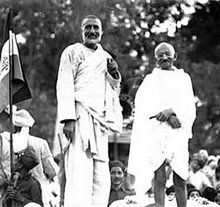Allen Ginsberg was no Hart Crane. As a poet, he didn't hold a candle to his heroes, Walter Whitman and Dr. Williams. Nevertheless, in this early poem ("Song") he got something right: the weight of the world is love.
As children, we know this. In our journey to adulthood, we manage to shed this knowledge. Or we translate it into something else: "love" is limited to an idealized romantic relationship between two individuals, or the circle of love is tightly circumscribed to include those who are related to us, or who are most like us, who fit certain criteria that allow us to clearly delineate who's with us and who's against us.
Leo Tolstoy, in his "The Gospel in Brief" and numerous other writings, argued that no one follows Jesus until s/he accepts and practices what he argued was the essence of Christ's teaching: Love your enemies. Pray for those who persecute you.
In this most Christian of countries, we plow billions of dollars each year into the manufacture and deployment of weapons designed to kill those whom we deem to be our enemies.Praise the Lord and pass the ammunition...
In Mark's gospel we encounter a Jesus who instructs his disciples to "Suffer the little children to come unto me..."
Ginsberg's "Song" closes with the erotically charged discovery that bearing the weight of the world (love) returns one "to the body/where I was born."
Somehow we have to each find our way back to a state in which we can once again love without question. If we do this, we can end the government-sponsored homicidal madness that transfers our nation's wealth into the coffers of a select few, robs us of loved ones, and spatters us all with the blood of those we do not see, do not know, but consider our enemies--in direct contradiction to the religious teachings that many of us claim to hold sacred.
Song
The weight of the world
is love.
Under the burden
of solitude,
under the burden
of dissatisfaction
the weight,
the weight we carry
is love.
Who can deny?
In dreams
it touches
the body,
in thought
constructs
a miracle,
in imagination
anguishes
till born
in human--
looks out of the heart
burning with purity--
for the burden of life
is love,
but we carry the weight
wearily,
and so must rest
in the arms of love
at last,
must rest in the arms
of love.
No rest
without love,
no sleep
without dreams
of love--
be mad or chill
obsessed with angels
or machines,
the final wish
is love
--cannot be bitter,
cannot deny,
cannot withhold
if denied:
the weight is too heavy
--must give
for no return
as thought
is given
in solitude
in all the excellence
of its excess.
The warm bodies
shine together
in the darkness,
the hand moves
to the center
of the flesh,
the skin trembles
in happiness
and the soul comes
joyful to the eye--
yes, yes,
that's what
I wanted,
I always wanted,
I always wanted,
to return
to the body
where I was born.
Allen Ginsberg
San Jose, 1954
Subscribe to:
Post Comments (Atom)



No comments:
Post a Comment